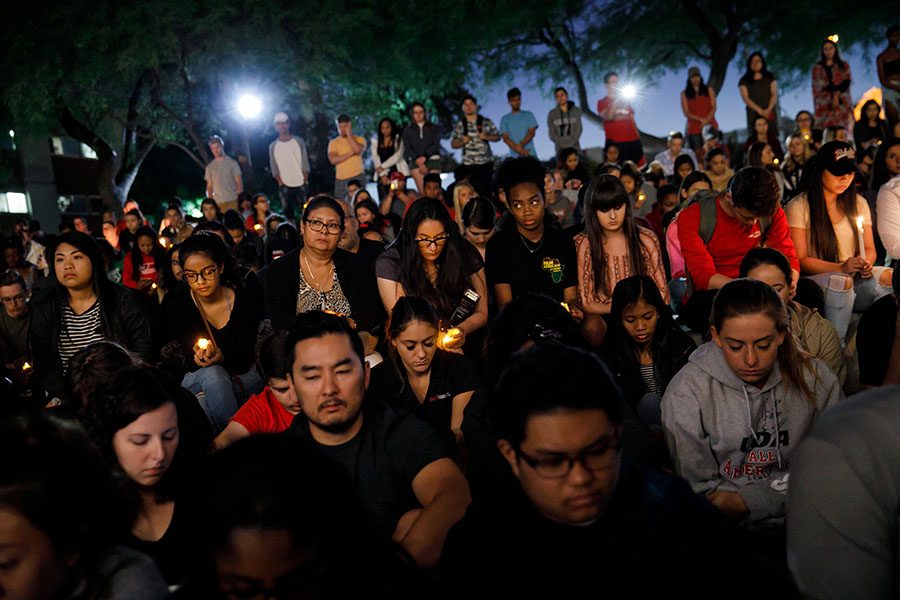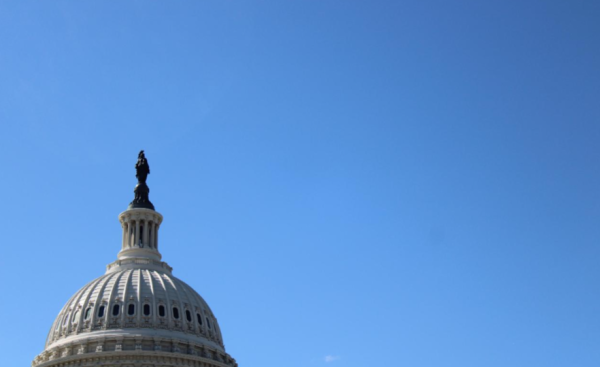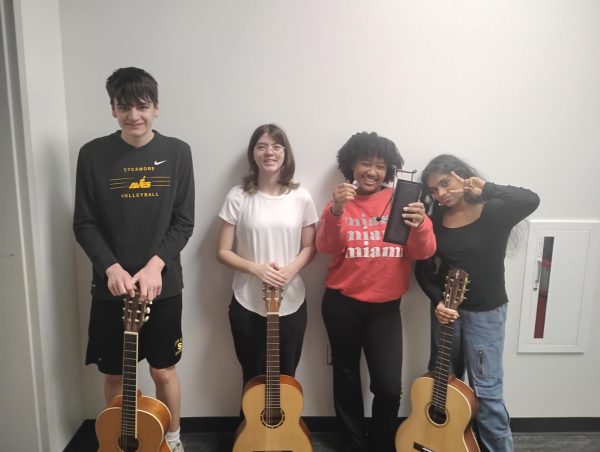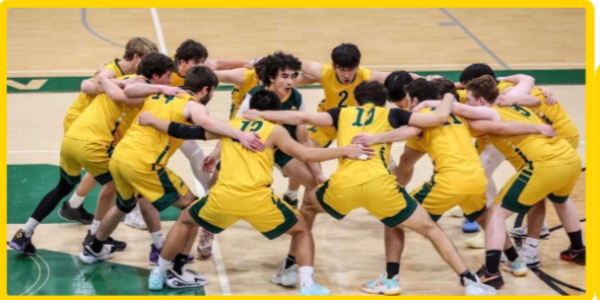Las Vegas shooting prompts inaction
REMEMBER. Students of the University of Nevada, Las Vegas hold a vigil for the shooting that took place in their city on October 2. Replacing last year’s Orlando Pulse Club shooting as the deadliest American mass shooting, 58 people were killed. Vigils and moments of silence must be the first response but not the final.
I first heard of the deadliest mass shooting in recent American history on my drive to school. Pulling into the parking lot, I heard about it, muttered in surprise, got to my spot, and, well, proceeded with my day.
Honestly, my reaction to the deaths of at least 58 people and the injuries of over 500 was, “This again? How terrible.”
Do not get me wrong: I do not believe this is the reaction that such an event deserves. Yet, I would bet that despite all this media coverage and social media acknowledgement, most people removed from the situation had a similar reaction.
“I think that the human brain is not built to mentally grasp the amount of people injured and killed by one person in the recent incident in Las Vegas. No matter which way I try to break it down it always becomes an underwhelming statistic.
“For me it’s sad to admit but I’ve become so accustomed to seeing another ‘school shooting’ or gun inflicted tragedy in the news I simply skim and continue. But I don’t think this is just me,” said Melinda Looney, 12.
The Gun Violence Archive defines a mass shooting as an event in which four or more are shot/killed in a single event, not including the shooter. By this definition, Las Vegas’ tragedy was the 273rd of 2017. So far, there have only been 275 days of 2017.
The shooting of Oct. 1 stands out due to its numbers, but how is anyone supposed to be shocked by what has more or less become a daily occurrence?
The political conversation has of course turned to gun control. On Wed., Oct. 4, Congressional Democrats plan to hold a demonstration outside the Capitol demanding action on gun control legislation. Others like House Speaker Paul Ryan suggest mental health reform as the solution.
“Automatic weapons are illegal, but individuals are still able to purchase bump stocks to allow semi-automatic weapons to fire up to 800 rounds per minute—the rate of automatic weapons—and inflict maximum carnage.
“I’m looking at ways to proceed with legislation to ban bump fire stocks and close this ridiculous loophole for good. Doing nothing in the wake of this tragedy is not an option,” said Senator Dianne Feinstein in a tweet.
Personally I feel that greater gun control is an obvious pursuit after such an event, but if not that, then at least something ought to happen. Right? But for some reason, I cannot make myself anticipate anything from our nation’s leaders.
To varying extents, we have all become desensitized to these horrific events. How could anyone make an argument to the contrary when we perpetuate a condition in which 12,000 gun homicides are committed each year?
We are no longer filled with the rage and injustice that we felt after Sandy Hook or after San Bernardino or after Orlando. It is essentially impractical to put ourselves through that kind of passion and emotion time and time again, because what has it ever accomplished?
“If people were capable of understanding the numbers, gun control would be an issue that rises to the forefront in our politics…It scares me that a man with his twisted intentions can go undetected with that much power.
“At the same time I only hear the stories with guns being destructive. I know relatives of mine that have guns and don’t use them in that way at all, so I don’t think I know enough to side my position for gun control,” Looney said.
In 2013, the Senate blocked a proposal for increased background checks after Sandy Hook. 2015 legislation to prevent those on terror watch lists from purchasing guns was shot down (pardon the pun) after San Bernardino. In 2016, the Senate rejected four gun control measures after Orlando, then the worst gun massacre in our history.
After 9/11, the United States declared a War on Terror; it did not sit around and wait for a repeat. Gun-related deaths in 2017 are about four times the number of casualties from Sept. 11, 2001.
We are shocked and then we are outraged and then nothing happens. Then, we continue with our lives, and at some point we are no longer shocked with the next one comes.
The problem is–this does not make logical sense. A murder today is no less tragic than one that took place a few years ago.
What ludicrous degree of callousness allows our politicians to keep putting this issue on the back burner to address “later” when statistics show there will be countless deaths between now and “later?”
I am not trying to blame people for moving on, nor am I arguing that everyone should agree on the solution, but we cannot continue to go down this slippery slope.
When the generation that grew up preparing for shootings in schools like they did natural disasters are grown up, how many people will have to die in a shooting for it to make the news?
Sure, we do not have all the answers. Most of us cannot even vote. But we at least owe it to the victims, and to ourselves, to respond. Care. Listen. Figure out what you think is the solution and say something about it. If not, we are more likely than not to regret it one day when it hits closer to home.
Your donation will support the student journalists of Sycamore High School. Your contribution will allow us to purchase equipment and cover our annual website hosting costs.










